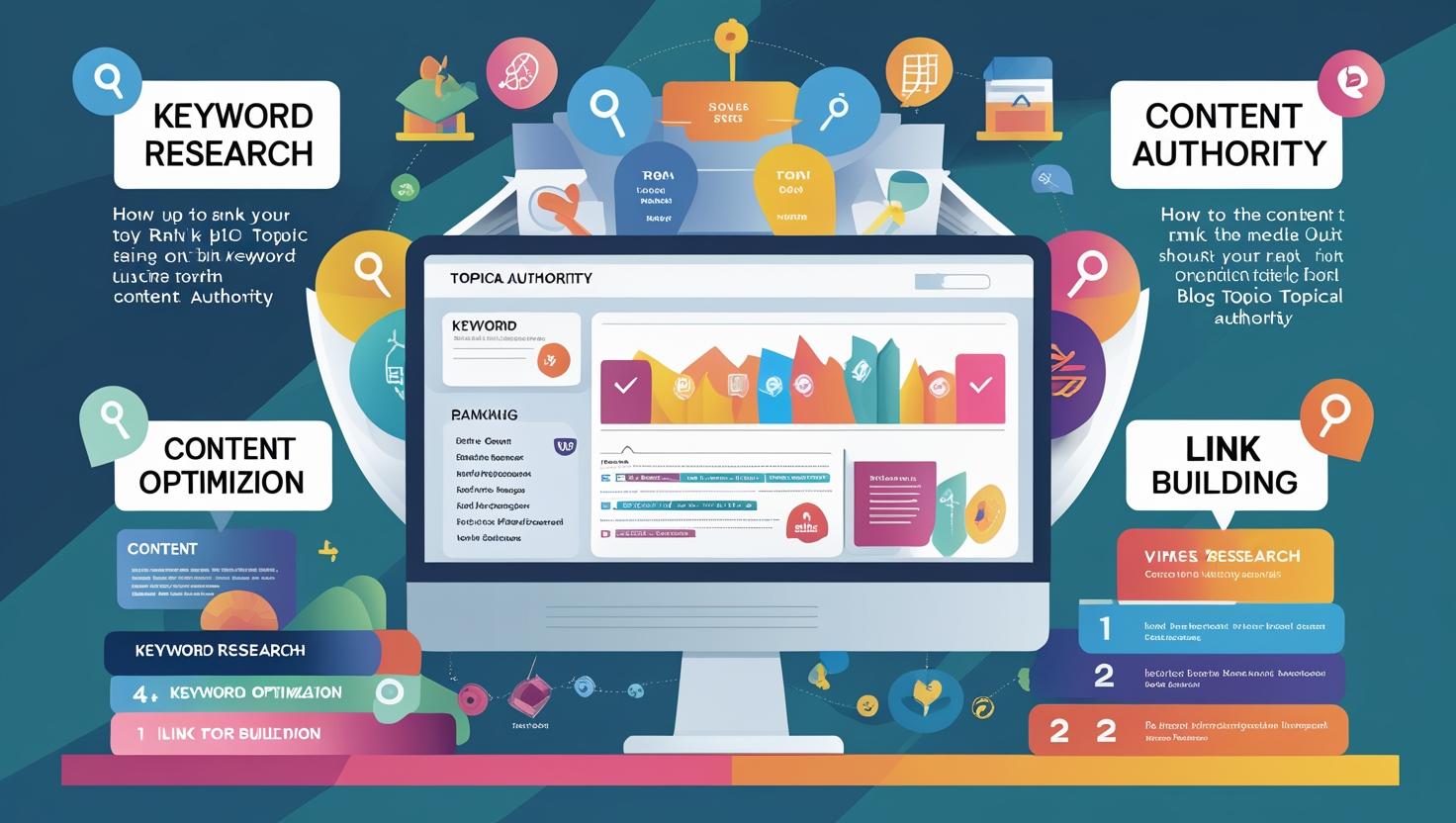In today’s competitive content landscape, ranking on Google is more challenging than ever. Gone are the days when a few keywords and backlinks were enough. Now, Google rewards topical authority—a website’s perceived expertise and depth on a subject. If you want your blog content to rank fast, understanding and leveraging topical authority is key.
This article breaks down what topical authority is, why it matters, and how to build it step-by-step to boost your blog's visibility and organic traffic.
What Is Topical Authority?
Topical authority is the degree to which your site is recognized as an expert on a specific subject. Instead of publishing random blog posts on unrelated topics, you demonstrate authority by covering one topic deeply and consistently.
For example, a blog that publishes 50 articles about “plant-based nutrition” will have more topical authority in that niche than one with five articles on nutrition, five on pets, and five on travel.
Why Google Cares:
Search engines want to deliver the most trustworthy and comprehensive results. Topical authority helps Google determine which websites truly understand the subject and deserve higher rankings.
Why Topical Authority Helps You Rank Fast
Here’s how topical authority accelerates ranking:
Better Indexing: Related content helps search engines understand the context of your blog faster.
Internal Linking: Interlinked articles signal structure and expertise to Google.
User Signals: Visitors spend more time on your site if they find multiple high-value posts on a single topic.
Semantic Relevance: Google uses natural language processing (NLP) to identify topic depth and related terms.
How to Build Topical Authority (Step-by-Step)
1. Pick a Focus Topic (Niche Down)
Start with a core topic that aligns with your brand, audience, and long-term content plan. Be specific. Instead of “fitness,” choose “fitness for women over 40” or “home workouts for busy professionals.”
Tip: Use Google Trends or AnswerThePublic to find topic opportunities.
2. Create a Topical Map
A topical map is a structured plan of all subtopics and related questions around your niche.
Example for “Remote Work Productivity”:
Core Topic: Remote Work
Subtopics:
Tools for remote teams
Time management
Remote burnout prevention
Work-from-home routines
Productivity metrics
Use tools like:
ChatGPT or AI mind mapping tools
Keyword research platforms (Ahrefs, Semrush, Ubersuggest)
3. Build Content Clusters
A content cluster is a group of related articles linked to one central “pillar” page.
Pillar Post: Broad, comprehensive guide (e.g., "Ultimate Guide to Remote Work")
Cluster Posts: Focused articles on subtopics (e.g., "Top 10 Tools for Remote Collaboration")
Internal linking between the cluster and pillar posts helps search engines understand the topical relationship.
4. Optimize for Semantic SEO
Instead of repeating the same keyword, use related terms and entities.
For example, instead of stuffing "remote work tips" 20 times, include:
asynchronous communication
time-blocking
virtual collaboration
hybrid teams
This signals to Google that you understand the full scope of the topic.
5. Answer Search Intent Accurately
If someone searches “how to stay focused working remotely,” they want practical tips, not a definition of remote work.
Match your content format to intent:
Informational intent: how-tos, guides, lists
Transactional intent: product reviews, comparisons
Navigational intent: brand or service pages
Tools like AlsoAsked and People Also Ask on Google help you match real user queries.
6. Post Consistently (Quality > Quantity)
Topical authority isn’t built overnight. Aim to:
Publish weekly or biweekly within your niche
Update and interlink older posts
Prioritize original insights and clear structure
7. Promote Smartly (Not Just Publish and Pray)
Even with authority, your content needs exposure:
Share on relevant forums and communities (Reddit, Quora, niche Facebook groups)
Use internal links from older high-traffic posts
Build natural backlinks by offering expert insights or guest posts
Example: Fast Ranking With Authority
A site publishing 20 articles on “freelance writing” in one month—covering tools, platforms, pitching strategies, payment systems, and legal tips—can outrank older sites with scattered articles on multiple industries.
Why? Depth beats breadth.
Final Thoughts
Topical authority is the new SEO currency. If your blog dives deep into a niche, creates structured and interconnected content, and answers search intent clearly, Google will recognize and reward your expertise faster than traditional approaches.
So, if you're tired of publishing posts that never rank, stop chasing volume and start building authority—one topic at a time.

